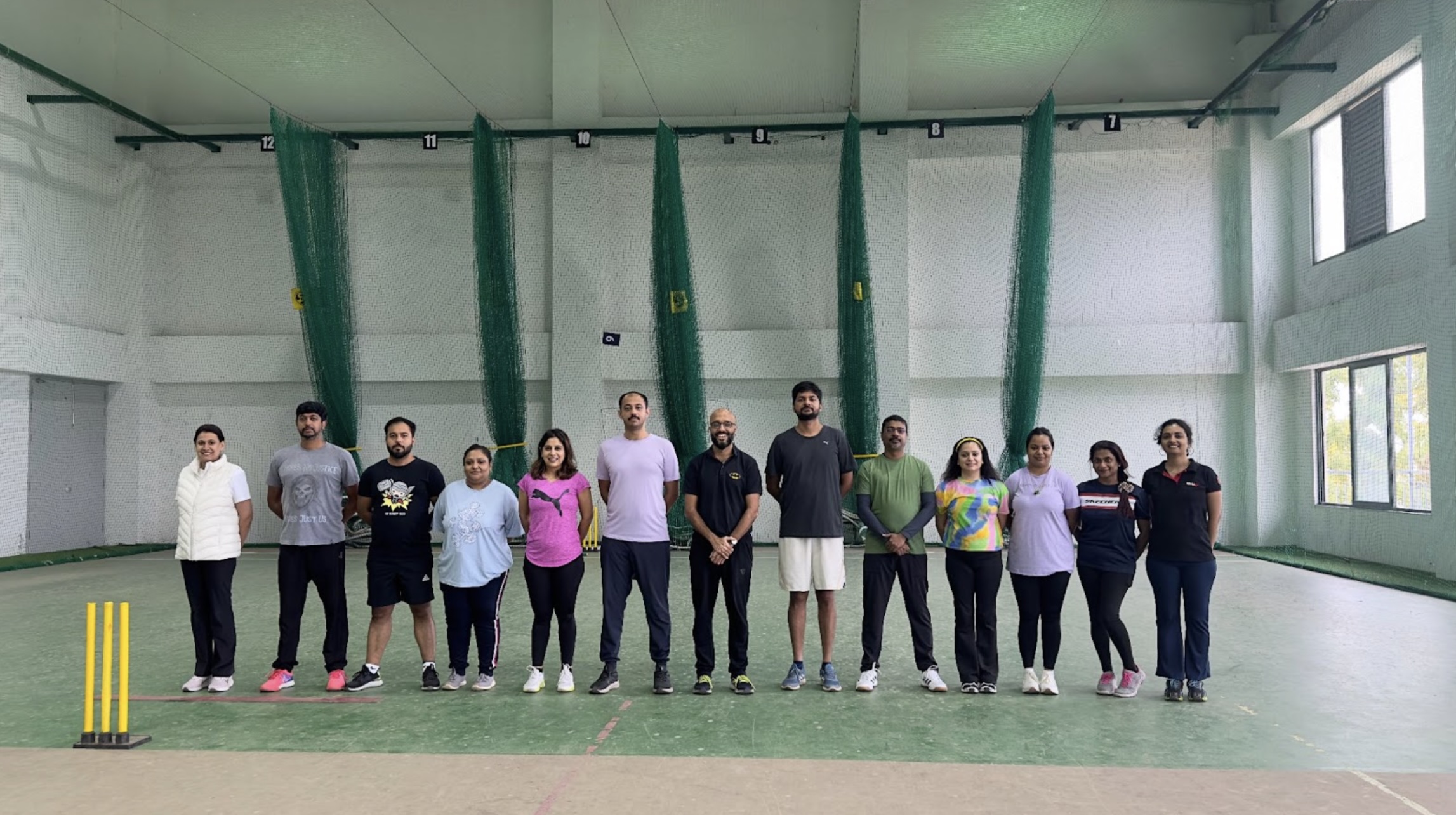I am a sucker for Analogous Learning i.e. applying knowledge or concepts from one domain to another seemingly unrelated domain. It leverages the similarities (or analogies) between different situations, concepts, or problems to solve new problems, understand complex ideas, or create innovative solutions.
This is partially how our flagship program Winning Together came about for us and I have just returned from it latest edition.
Each edition unlocks something new in me. Guess that’s the impact of playing instead of watching, of immersing instead of observing, of doing instead of discussing . So I decided to share two such unlocks with you below.
ut before that, what really is “Winning Together” and how did it come about?
It started with this question we have been asking: What are other contexts or analogies that organisation leaders can learn from – Sports, music, nature?
We started with sports.
We told ourselves we first need to find a place that nurtures excellence.
A place which is the best of the best.
We found – The Padukone Dravid Centre for Sports Excellence.
Then we understood there are three things that the best sports teams have clear answers for:
1. What is winning for my team?
2. What are our rituals and system for winning?
3. What is our culture of winning?
This understanding is the foundation for Winning Together. Over the two days, we bring teams from organizations here to play, observe, interact and answer the same three questions for their Organization.
1. What is winning for my team?
2. What are our rituals and system for winning?
3. What is our culture of winning?
Let’s dive into the lessons.

Image 1: Team interacting with one of India’s top strength and conditioning coach
Lesson 1 : Its all about the process
There are pieces of wisdom that all of us have heard or read umpteen times. But then there comes a moment when that simple statement hits you deep and you go Wow!
I call these Cuts Deep moments.
We had just completed a game of cricket. In fact, Two games.
The Leadership Team had split up into two teams one with experts and the other with novices in cricket.
Guess which team won?
Experts? Nope!
The underdogs. The novices. The rookies. They won both the games.
The captain of the losing team was the Vice President of the company. Let’s call him Sachin. Sachin is someone who is obsessed with winning. That’s all that matters to him, whether it is the pitch or the cubicle. So before the start of the game, he picked the best players. On paper and in terms of skills his team was the strongest. But, they lost both games.
A few minutes into the debrief, Sachin spoke up.
‘We had a better, fitter and more experienced team.
But we were so focused on winning that we over-engineered the game when things didn’t go our way, and we lost.
It seems the other team focused on the basics and having fun. And that was the difference.’
Vociferous nods.
Silence.
Smiles of acknowledgement.
#cutsdeep
Sachin continued to reflect and share that his obsession with winning at work also often leads to unnecessary pressure, which backfires.
‘I forget to enjoy the process and fun goes out of the window.
Unhealthy stress engulfs me. Thinking becomes foggy.
And I suspect that all this travels below to my team.
I want to go back to enjoying the process.‘
Simple right? Not actually, it’s difficult but achievable.
So as Dhoni says “It’s all about the process”

Image 2: The Winning team after the intense cricket match
Lesson 2 : Find your Quality Equaliser
Akanksha Singh is the former Indian Women’s Basketball team captain. Through these two days, the leadership team got a chance to play under the watchful eye of Akanksha. Post the game she shared this wise nugget.
‘During the game, I saw some of you get frustrated because you had not stepped on a basketball court ever before in life, or you are not fast enough or you are not strong enough.
I was in the same boat.
I was the shortest player on the court – 5’6”.
It often made me feel like I was at a disadvantage.
It was easy for taller players to dominate me, and I struggled with feeling less capable.’
She continued,
‘I understood there will always be players who are taller, stronger, and faster than me.
What I need to do is to find my Quality Equaliser.
If someone else is bigger, taller or stronger, how do I neutralise that?
I couldn’t suddenly be as big, tall or strong.
But I could be faster, agile and swifter.
And that was my quality equaliser!’
What is yours?
#cutsdeep
Akanksha found her quality equalizer. She couldn’t be the tallest player, but she focused on becoming the fastest and most agile. And look where that mindset took her—The captain of the Indian basketball team!
I came back and asked the Co.labx team
– We dont have shitloads of investor money.
– We don’t have a massive team.
– We work out of homes around the country.
What is our quality equaliser?
I got not one but four!
– Our obsession with the User.
– Our ability to experiment and iterate fast.
– Our hunger to nail the processes.
– An incredible focus on culture.
What’s yours? 

Image 3: De-brief after the basketball match with Akansha Singh
That’s a wrap—2 key lessons from the sports field! 
Before signing off, we have a request to you
If you are interested in bringing your team together in the sports field and don’t know how, let’s chat here , we will be more than happy to help

The Diary of a Coach
Diary of a Coach is a monthly newsletter sharing lessons in leadership and organisational development by people who are actively championing this work with various organisations.

